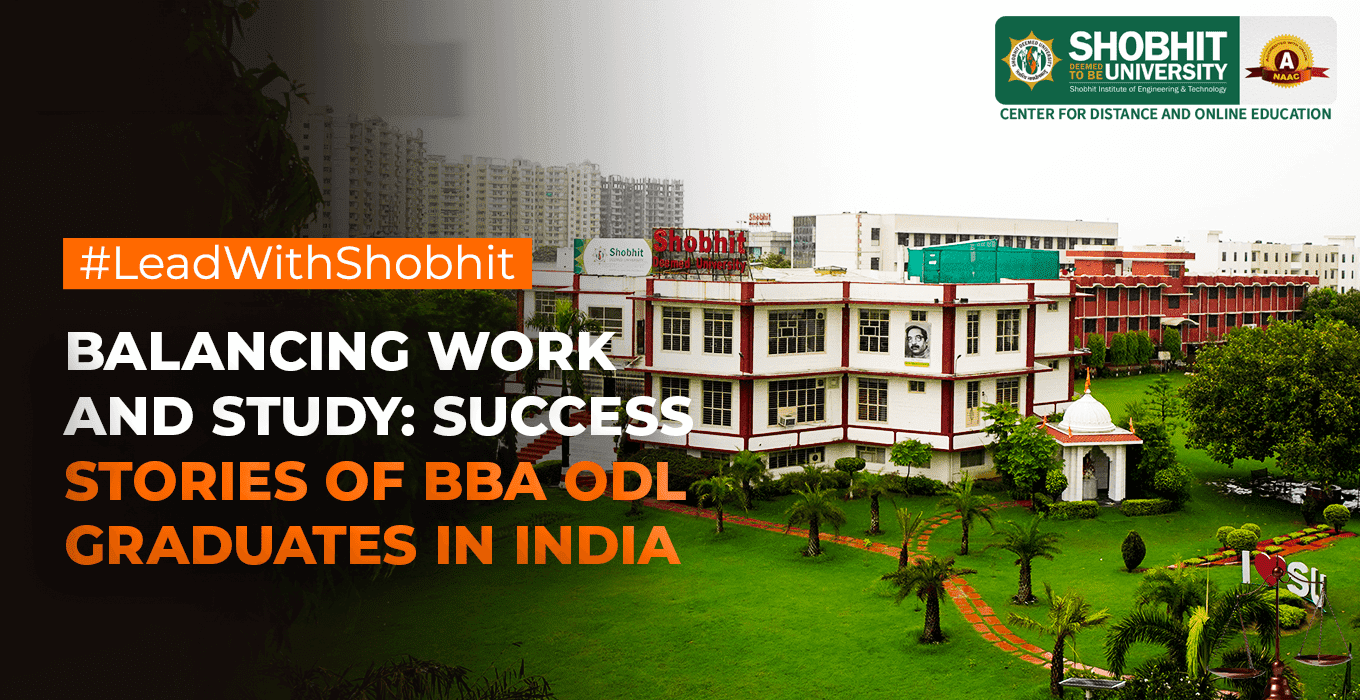The landscape of higher education in India has been significantly reshaped by the advent of Open and Distance Learning (ODL), particularly in the realm of business administration. This transformation is vividly illustrated through the success stories of Bachelor of Business Administration (BBA) graduates, who have adeptly balanced their professional responsibilities with academic pursuits.
The Growing Reach of ODL in Business Education
India’s educational sector, especially the young demographic, has been a fertile ground for the expansion of ODL. With the education sector valued at around $117 billion as of 2020, and a projection of reaching approximately $225 billion by 2025, the role of ODL in this growth is undeniable. The Indian Edtech market alone is expected to reach $30 billion by 2031, reflecting a paradigm shift towards skill-based and digitally facilitated learning.
Universities Pioneering ODL in India
Several universities in India have embraced ODL, tailoring their programs to cater to working professionals and ensuring flexibility and practicality in learning. Notable among them are NMIMS NGASCE, Symbiosis Centre For Distance Learning Institute, and Sikkim Manipal University. Each of these institutions has successfully integrated ODL into their curriculum, offering various specializations that align with the evolving market demands.
Shobhit Deemed University’s Foray into ODL
Shobhit Deemed University in Meerut has also joined this league, offering specialized BBA programs through ODL. These programs are designed to provide a blend of theoretical knowledge and practical skills, catering to the diverse career aspirations of students. The university’s approach is a fine example of how educational institutions can contribute to the empowerment and skill enhancement of students, especially those who need to balance work and study.
The Impact of ODL on Working Professionals
The flexibility of ODL programs allows individuals to continue their professional engagements while upgrading their academic qualifications. This dual benefit is a significant factor in the popularity of ODL among working professionals. The possibility of attaining higher positions, transitioning to desired career paths, and saving on living and commuting expenses are among the key advantages highlighted by ODL graduates.
Successful Outcomes and Diverse Participation
Success stories from ODL programs often feature a diverse group of learners, including a significant number from rural areas, indicating the widening reach of distance education. The success factors identified in studies, such as those conducted by IGNOU, include effective academic assessment systems, supportive educational providers, and quality study materials.
Conclusion
The journey of BBA graduates who have completed their education through ODL in India is inspiring. It demonstrates the feasibility of achieving academic goals while meeting work and family commitments. Institutions like Shobhit Deemed University and others are pivotal in making this possible, offering courses that are not just academically rigorous but also flexible and aligned with the demands of the modern workforce.
The success stories of BBA ODL graduates in India are a testament to the effectiveness of distance education in providing quality, accessible, and practical higher education. These narratives underline the transformative impact of ODL in the Indian educational landscape, paving the way for a more inclusive and adaptable future in business education








